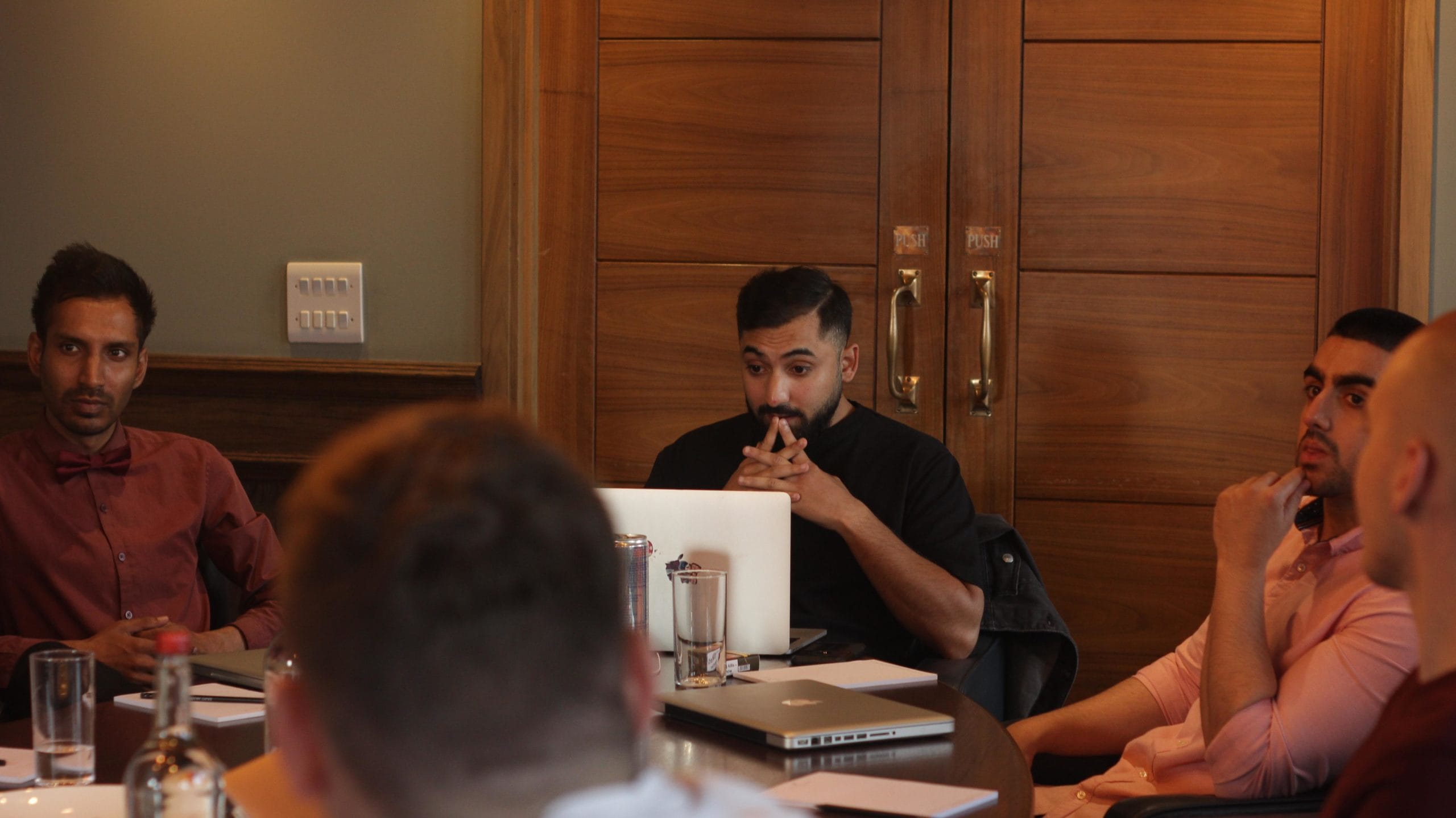
The Best Digital Talent Marketplaces Are Educators
In their excellent annual survey, Freelancing in America, Upwork points out that freelancers are more committed to the work needed to update and improve their skills, and more proactive learners than traditional employees.
Why? It shouldn’t be a surprise. Freelancers must keep their skills competitive and up to date. Whether a project manager or a software developer, your expertise is your golden ticket.
Freelancers generally have less access to continuing education and certainly have less access to the cost (and time) free education that full-time staff are given. And, in turn, few online talent marketplaces have invested in education and skills-building within their platform community. But, that’s beginning to change as thoughtful platform executives begin to actively and financially support the continuing competence of their freelancers, either as a free service or as a product offered for cost. For example, the Business Talent Group has contracted with General Assembly to make their programs available to BTG’s freelance community. Another major online talent marketplace, Fiverr, has established a learning organization that provides educational services to their freelancers.
And, some digital talent marketplaces are taking it to the next level. Jolt.io, the Israeli co-learning platform, recently appointed a director of Jolters, responsible for supporting the teachers on Jolt’s site. Toptal’s community team similarly provides regular technical educational opportunities for Toptal freelancers. Hoxby, a U.K. based freelance community, engages it’s freelancers to share experiences and provide peer support, and are paid to do so by the platform. More impressive still, Hoxby recently appointed a director of future-proofing, responsible for the continuing development of platform members.
 While these few cases are impressive, most platforms are less distinguished. In many cases, the platform is operating on a shoestring and cannot or chooses not to invest in the education of their freelancers. And freelancers often work with multiple platforms, leaving some companies to not see the need to invest. And, some see themselves as a market maker purely, with no obligation to upskill their freelance community. But, the fact is, freelancers are increasingly demanding help in skill-proofing. The online talent marketplaces that will thrive are those investing in their freelance community.
While these few cases are impressive, most platforms are less distinguished. In many cases, the platform is operating on a shoestring and cannot or chooses not to invest in the education of their freelancers. And freelancers often work with multiple platforms, leaving some companies to not see the need to invest. And, some see themselves as a market maker purely, with no obligation to upskill their freelance community. But, the fact is, freelancers are increasingly demanding help in skill-proofing. The online talent marketplaces that will thrive are those investing in their freelance community.
But, it begs the question: how do freelancers stay up to date? And a useful perspective was offered recently by a survey commissioned by Degreed.com, and conducted by Harvard Business School’s publishing division.
Here’s what they found:
1. Traditional learning and development (L&D) practices don’t deliver enough “bang for the buck.” Using a Net Promoter Score methodology, Finance professionals scored their L&D experience at -21. Engineering and R&D gave a score of -22, and IT professionals came in at -33.
2. How professionals really learn was quite different than the event-driven education that most organizations offer. The HBS study, surveying full-time employees in a wide range of companies, found that professionals learn this way:
· Daily: Reading interesting and pertinent articles and searching for relevant data sources online
· Weekly: Watching relevant videos, reading books, tuning into podcasts, utilizing mobile apps, and engaging in social networks
· Monthly: Watching webinars and webcasts, seeking feedback, working with a mentor or coach, participating in online courses, and engaging with colleagues in my professional network
· Quarterly: Attending live classes and conferences
3. The least popular educational venue was a company learning system. Sixty-two percent of individuals cited their professional network as the most helpful sources of learning; they did not generally rate the company’s learning management investments as a helpful source of continuing education or competence building.
4. Finally, guidance and direction was an important aspect of successful learning for survey participants. Thirty percent of individuals saw the lack of mentorship advice and coaching as a significant obstacle to confidently knowing what to work on in order to remain up to date. Feedback from a respected source was crucial.
What do these data suggest for freelance platforms:
 1. Bring on board a learning leader. Most large organizations have a chief learning officer or alternatively named learning leader. As I mentioned previously, Toptal treats this as a community function, with members of the community team visiting different cohort locales on a regular basis. Hoxby calls it future-proofing. Whatever the title and organizational affiliation, platforms with thousands or tens of thousands of freelancers have a responsibility to provide freelancers on their platform with professional guidance on how to build and preserve expertise and deliver strong performance.
1. Bring on board a learning leader. Most large organizations have a chief learning officer or alternatively named learning leader. As I mentioned previously, Toptal treats this as a community function, with members of the community team visiting different cohort locales on a regular basis. Hoxby calls it future-proofing. Whatever the title and organizational affiliation, platforms with thousands or tens of thousands of freelancers have a responsibility to provide freelancers on their platform with professional guidance on how to build and preserve expertise and deliver strong performance.
2. Analytics and assessments help freelancers better understand their strengths, vulnerabilities and needs for improvement. Companies like Freelancer.com collects a wide variety of measures and offers analytics to their freelancers. Upwork regularly publishes information on the work and skills most in demand; aligning analytics with skill-proofing educational offerings provides helpful insight and solutions e.g., what expertise will be important in future, and what skills are most important to small vs. large client organizations. Assessments are a second important area for marketplaces to provide helpful feedback and developmental guidance. Forty-eight percent of survey participants said they benefited from more frequent self- assessments and peer comparisons to indicate where they need to improve.
3. Focus on skills with focused, highly efficient, learning formats. HBS found that 61% of survey participants wanted learning to be laser-focused on skill gaps. But, freelancers have little free time, and pressing demands to stay employed. Jolt and other co-learning platforms like Learnerbly and Degreed demonstrate that brief, focused, skill-based education, taught by professionals for professionals, and offered on a remote basis using smart educational technologies, is more efficient and less costly than traditional learning venues.
4. Work the community. I’m impressed with the Hoxby approach: peers teaching peers, but guided by a future-proofing strategy. But investing in community building benefits freelancers educationally. and socially by creating a collegial network. The freelance complication is, of course, that people aren’t often physically together. But, local “meet-ups” make sense in many cases, and zoom, slack, and other communications apps are helpful in closing the distance. Toptal is an excellent example of a marketplace that has invested in strong local communities. Forward-thinking marketplaces also work closely with co-work environments like Go Floaters in India that provide education to its members.
 5. Peer coaches. A significant fraction of freelancers at any given time want the chance to work with a coach or peer advisor. Peers helping peers is an obvious channel to help onboard new freelancers, and help experienced freelancers get the feedback they need to have a successful business. And, many individuals eager to coach, find they gain as much as the person they are coaching. For example, Jolt finds that more senior and experienced educators in their marketplace are generally supportive of coaching more junior Jolt faculty. Comet, the French digital talent marketplace has established a successful peer mentor program that pairs young freelancers with more senior freelance colleagues based on young freelancers’ aspirations, for example, getting starting in freelancing, improving their brand, or establishing a new area of expertise.
5. Peer coaches. A significant fraction of freelancers at any given time want the chance to work with a coach or peer advisor. Peers helping peers is an obvious channel to help onboard new freelancers, and help experienced freelancers get the feedback they need to have a successful business. And, many individuals eager to coach, find they gain as much as the person they are coaching. For example, Jolt finds that more senior and experienced educators in their marketplace are generally supportive of coaching more junior Jolt faculty. Comet, the French digital talent marketplace has established a successful peer mentor program that pairs young freelancers with more senior freelance colleagues based on young freelancers’ aspirations, for example, getting starting in freelancing, improving their brand, or establishing a new area of expertise.
6. Opportunities to give back help sharpen freelance skills, and build their and the platform’s reputation. Toptal’s “top volunteer” program connects freelancers with charities or other philanthropic work. It’s a natural way to help freelancers develop and contribute to their community and society.
There’s no doubt that the velocity of tech innovation is reducing the half-life of know-how in almost every profession, and certainly for freelancers. In the introduction to HBS study, 80% of executives believed their company’s future depended on skill-proofing the workforce, and that traditional learning models weren’t able to keep up. A smart, ambitious, online talent marketplace would do well to provide its members with the help they need to be successful. Continuing skill-sharpening is the lifeblood of the freelance revolution. Viva la revolution!
Originally posted by Jon Yonger
If you enjoyed reading this blog, you might find this article interesting too.
Digital analytics, optimisation, data science or programmatic expert, and looking for a job?
Digital agency looking to expand your team with top-tier talent?
Get in contact with us!




